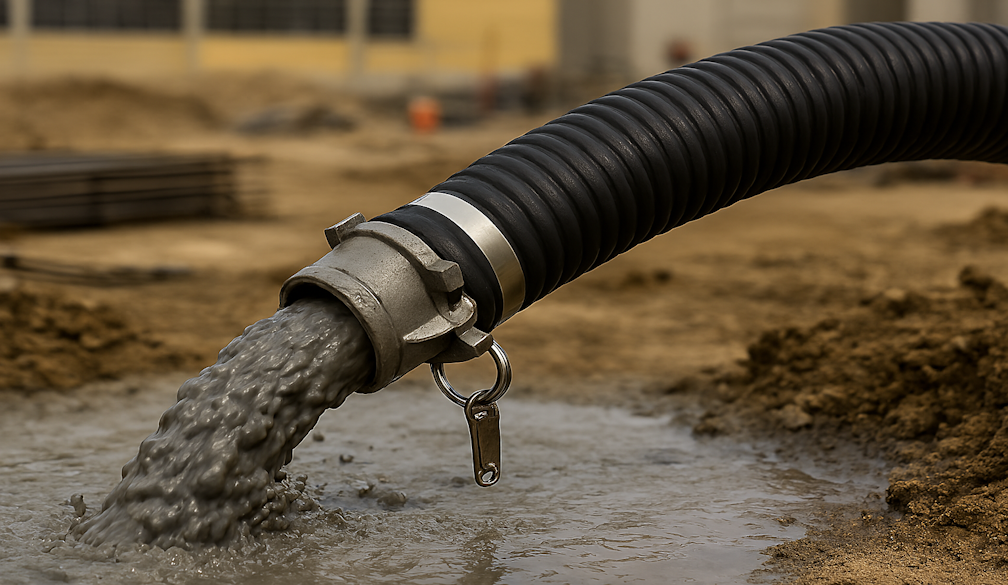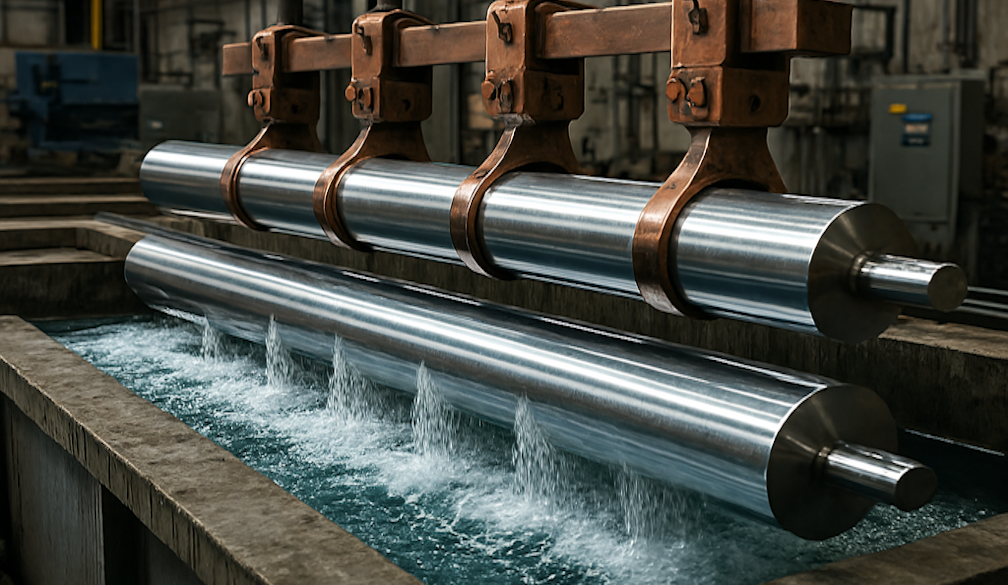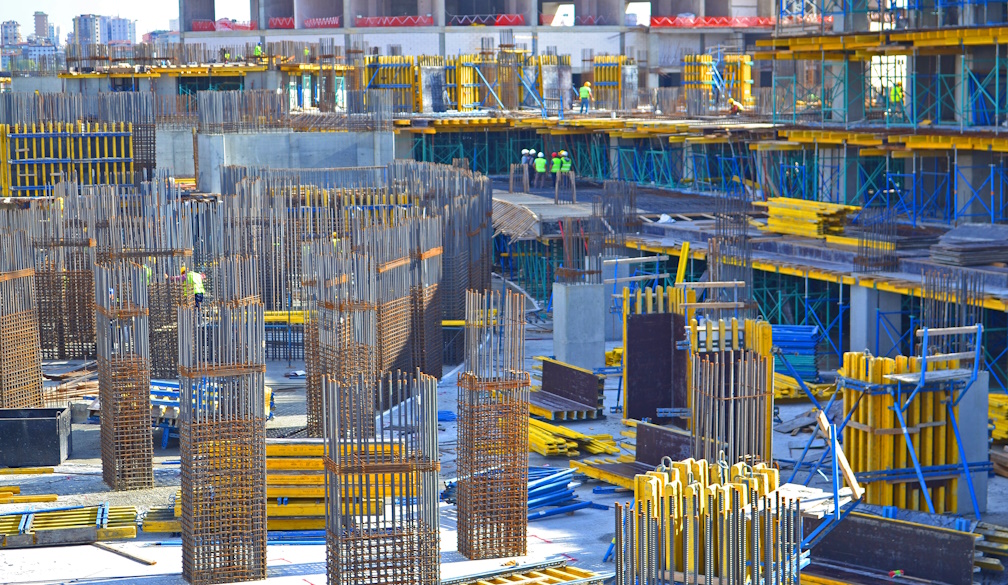Slurry Hose Solutions for Heavy-Duty Industrial Applications
- Written by Guest Posting

In industries where abrasive materials, thick liquids, and solid-laden mixtures move constantly through pipelines, choosing the right hose is not optional, it is foundational. A slurry hose is specifically engineered to transport mixtures of solids and liquids under demanding conditions, making it indispensable across mining, dredging, construction, and material processing operations. Built to endure friction, pressure, and harsh environments, these hoses form the backbone of reliable slurry transfer systems.
Unlike general-purpose hoses, slurry hoses are designed with reinforced layers and abrasion-resistant linings that prevent premature wear. The internal construction focuses on minimising erosion caused by fast-moving particles, while the outer layers protect against environmental stress such as UV exposure, moisture, and mechanical damage. This combination ensures uninterrupted flow, reduced downtime, and long-term operational efficiency.
Understanding How Slurry Transfer Systems Work
Slurry transfer involves moving dense mixtures that behave differently from water or simple liquids. The solid content creates turbulence, impact stress, and internal scouring, which can quickly degrade standard hoses. Slurry hoses are designed to handle these forces by maintaining flexibility without sacrificing strength. Their internal diameter, wall thickness, and rubber compounds are carefully selected to balance flow efficiency and durability.
In mining and mineral processing, slurry systems operate continuously, often around the clock. Any failure can halt production and lead to costly repairs. This is why engineers prioritise hoses that can withstand extreme pressures and abrasive loads. A well-designed slurry hose reduces the risk of leaks, blockages, and bursts, contributing to safer and more predictable operations.
Material Composition and Performance Characteristics
The performance of a slurry hose depends heavily on its material composition. High-quality hoses typically feature natural or synthetic rubber linings that resist abrasion while remaining flexible. Reinforcement layers, often made from textile cords or steel wire, provide structural integrity and pressure resistance. The outer cover acts as a shield, protecting the hose from external damage and environmental exposure.
These components work together to ensure consistent performance even in challenging conditions. Whether transporting mineral slurries, sand mixtures, or industrial waste, the hose must maintain its shape and internal smoothness. This reduces friction losses and helps maintain steady flow rates, which are critical for efficient system design.
Applications Across Mining and Industrial Sectors
Slurry hoses are widely used in mining operations for transporting ore, tailings, and waste materials. They are equally important in dredging projects, where sand and sediment must be moved over long distances. In construction and industrial processing, slurry hoses support concrete pumping, waste transfer, and material handling tasks that involve abrasive mixtures.
Each application places unique demands on the hose, from pressure requirements to chemical compatibility. Selecting the right hose involves understanding these conditions and matching them with appropriate specifications. When chosen correctly, slurry hoses become long-term assets rather than consumable components.
Installation and System Integration Considerations
Proper installation plays a major role in the lifespan of a slurry hose. Alignment, bend radius, and support structures all influence performance. Excessive bending or improper anchoring can lead to stress points that accelerate wear. Engineers often design systems with gradual curves and adequate supports to distribute load evenly along the hose length.
Connection points also require careful attention. Secure couplings and clamps prevent leaks and ensure smooth transitions between system components. Regular inspections during operation help identify early signs of wear, allowing for timely maintenance and replacement before failures occur.
Maintenance Practices for Long-Term Reliability
Routine maintenance is essential for maximising the service life of slurry hoses. Visual inspections can reveal surface cracks, bulges, or abrasions that indicate internal wear. Monitoring pressure changes and flow rates can also provide early warnings of developing issues. By addressing minor problems early, operators can avoid costly downtime and extend the usable life of their hose systems.
Cleaning procedures are another important factor. Residual material left inside the hose can harden or settle, increasing abrasion during subsequent use. Proper flushing and storage practices help preserve internal linings and maintain performance over time.
Why Quality Matters in Slurry Hose Selection
Not all slurry hoses are created equal. Variations in material quality, reinforcement design, and manufacturing standards can significantly impact performance. High-quality hoses are tested to meet strict industry requirements, ensuring they can handle the pressures and abrasives they encounter daily.
Investing in reliable slurry hoses reduces long-term costs by minimising replacements and maintenance. It also enhances workplace safety by lowering the risk of sudden failures. For operations that depend on continuous material transfer, this reliability is invaluable.
Supporting Components That Enhance System Efficiency
While the hose itself is critical, supporting components also contribute to overall system performance. Accessories such as floats, couplings, and protective sleeves help manage hose positioning and reduce stress. These additions are particularly important in dredging and floating pipeline systems, where buoyancy and stability are essential.
Integrating the right accessories with a well-chosen slurry hose creates a balanced system that performs consistently under demanding conditions. This holistic approach ensures that each component supports the others, resulting in smoother operations and improved longevity.
The Long-Term Value of the Right Slurry Hose
Choosing the correct slurry hose is a strategic decision that affects productivity, safety, and operating costs. By understanding application requirements, material properties, and maintenance needs, operators can select hoses that deliver reliable performance over time. In high-wear environments, this choice can make the difference between frequent disruptions and steady, efficient operation.
As industries continue to demand higher performance from their material handling systems, slurry hoses will remain a critical component. Their ability to withstand abrasion, pressure, and harsh conditions ensures they continue to support essential industrial processes with confidence and consistency.




